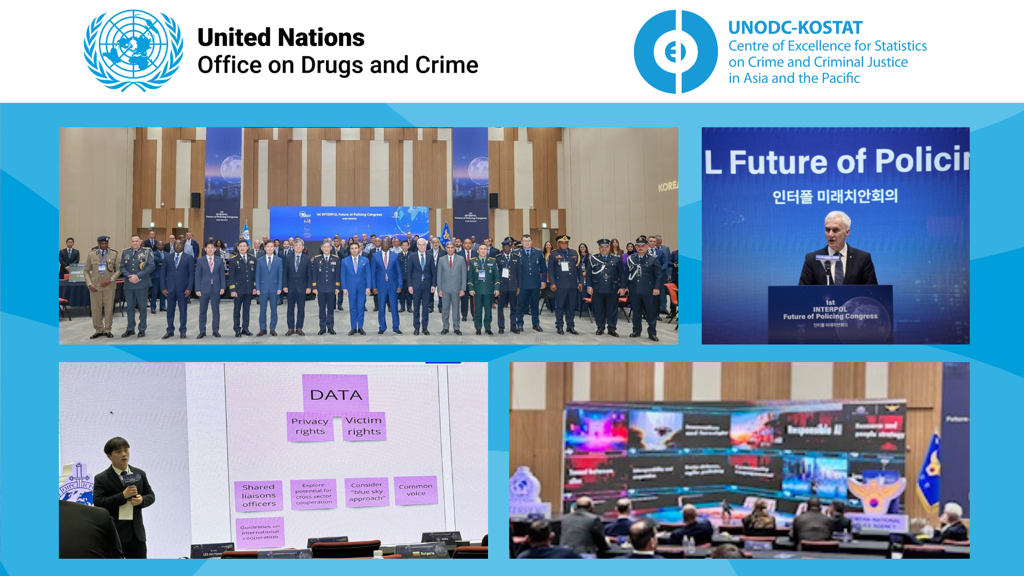
Incheon (Republic of Korea), 24-25 October – The CoE participated in the first INTERPOL Future of Policing Congress co-hosted by Korean National Police Agency (KNPA) and the International Criminal Police Organization (INTERPOL). The congress brought together law enforcement leaders, future experts, and other relevant stakeholders from industry and academia from 37 countries to envision potential scenarios for the future, understand their implications for law enforcement functions, and strengthen law enforcement agencies for upcoming challenges.
The Congress commenced with opening remarks from INTERPOL Secretary General, Jürgen Stock,highlighting the importance of working, learning and operating in a fast-changing world. Congratulatory remarks were followed by Commissioner General of KNPA, Cho Ji Ho, who underlined the role of the congress in “present[ing] countries with an invaluable opportunity to canvass new possibilities in responding to technology-driven crimes and engage with one another for better cooperation.”
The Congress featured discussions on three themes:
Session 1 - Future Scenarios: Participants were asked to draw the potential future scenarios of law enforcement and policing in social, technological, economic, environmental, and geopolitical landscape.
Session 2 - Impact on law enforcement: The second session focused on the impact on law enforcement in terms of the evolution of crime, policing duties, data and evidence, and changing models of policing, trust and citizen expectations. Participants exchanged their opinions about the integrity of evidence (fake evidence, evidence manipulation by Artificial Intelligence, trust in the evidence), police capacity (data management, data production), and new criminal investigation techniques.
Session 3 - Path forward for law enforcement preparedness:The final session focused on the path forward for law enforcement preparedness, encompassing equipment and tools, skill sets, processes and procedures, organizational structures, and international cooperation. Participants shared insights for future policing and reached a consensus that better training and education should be given to the police when it comes to new technology and digital solutions. Having an international forum similar to the INTERPOL Future of Policing Congress was proposed as a way to provide a forum for fostering discussion.
During the sessions, the CoE stressed its role as a regional innovation hub that has been continuously providing technical assistance to strengthen the statistical capacity of Member States in the field of crime and criminal justice. A particular emphasis was made to the implementation of International Classification of Crime for Statistical Purposes (ICCS), which provides a framework for the systematic production and comparison of statistical data across different criminal justice institutions and jurisdictions.
The UNODC-KOSTAT CoE will continue collaborating with various law enforcement agencies in the region and around the world while assisting member states in producing high-quality data for crime and criminal justice statistics.
Further information on the CoE can be found here, Twitter @CoE_UNODC and Facebook @UNODC.KOSTAT.CoE